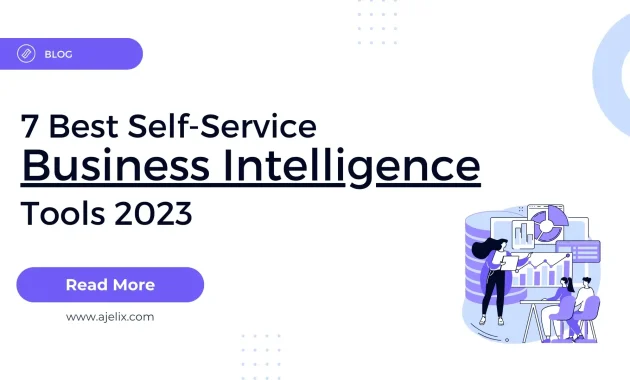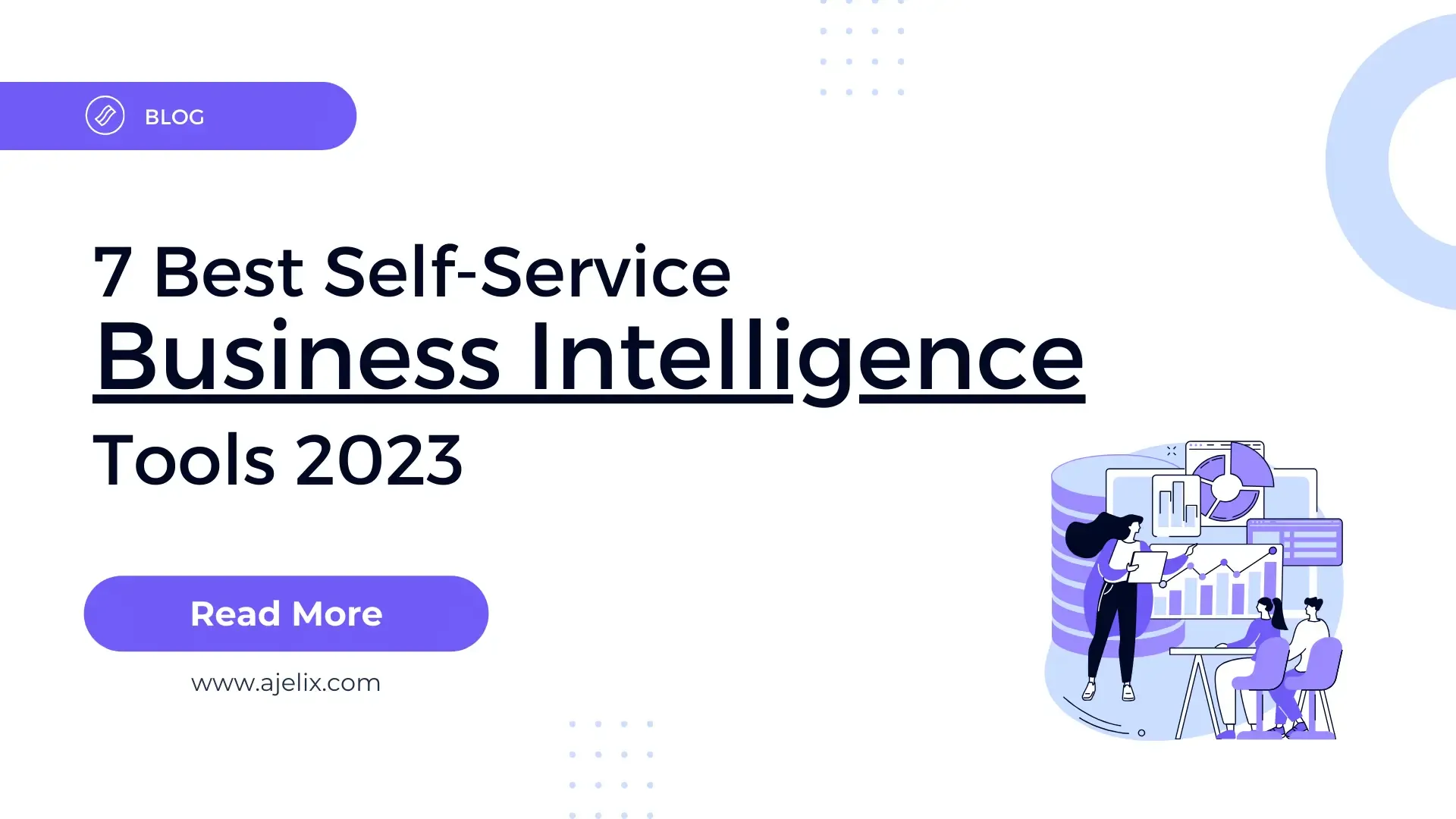
Self-Service Business Intelligence Software: A Paradigm Shift
In today’s data-driven landscape, businesses are drowning in information. Extracting actionable insights from this deluge, however, often proves challenging. Traditional business intelligence (BI) solutions frequently require IT intervention for even the simplest requests. This creates bottlenecks, delays, and frustration. The solution? Self-service business intelligence software. This empowers business users to analyze data independently, ultimately reducing the IT burden.
This article explores the transformative power of self-service business intelligence software. We’ll delve into its benefits, features, and how it can reshape your organization’s approach to data analysis. The core aim is to provide a comprehensive understanding of how this technology is changing the way businesses operate.
The IT Burden: A Common Pain Point
The IT department often becomes the gatekeeper of data. Business users require IT support to access, manipulate, and visualize data. This reliance creates a significant IT burden. IT teams become swamped with requests, diverting their attention from strategic initiatives. This leads to:
- Long turnaround times for report generation.
- Limited access to data for business users.
- Increased IT costs due to staffing and infrastructure.
- Frustration for both IT and business teams.
This scenario highlights the need for a more efficient and user-friendly approach. Self-service business intelligence software offers a solution by shifting the responsibility of data analysis to the end-users.
What is Self-Service Business Intelligence Software?
Self-service business intelligence software empowers business users to analyze data without relying on IT assistance. These platforms typically feature intuitive interfaces, drag-and-drop functionality, and pre-built templates. They allow users to:
- Connect to various data sources.
- Prepare and transform data.
- Create interactive dashboards and reports.
- Share insights with colleagues.
The key is ease of use. The software is designed to be accessible to users with little or no technical expertise. This democratizes data, making it available to everyone in the organization.
Key Features of Self-Service BI Software
Self-service business intelligence software boasts a range of features that contribute to its effectiveness. Here are some of the most important ones:
Intuitive User Interface
A user-friendly interface is crucial. The software should be easy to navigate, with clear instructions and visual cues. Drag-and-drop functionality simplifies data manipulation and report creation.
Data Connectivity
The ability to connect to various data sources is essential. This includes databases, cloud platforms, spreadsheets, and other data repositories. Robust data connectivity ensures users can access all relevant data.
Data Preparation and Transformation
Data often needs to be cleaned, transformed, and formatted before analysis. Self-service business intelligence software provides tools for data preparation, making this process easier.
Data Visualization
Effective data visualization is key to understanding insights. The software should offer a wide range of charts, graphs, and dashboards to present data in a clear and concise manner.
Collaboration and Sharing
The ability to share insights with colleagues is important. Features like report sharing, commenting, and collaboration tools enhance teamwork and knowledge sharing.
Mobile Access
Mobile access allows users to access data and dashboards on the go. This enhances flexibility and enables real-time decision-making.
Benefits of Self-Service Business Intelligence
The advantages of self-service business intelligence software are numerous and far-reaching. Here are some of the key benefits:
Reduced IT Burden
This is the primary benefit. By empowering business users, IT departments can focus on strategic initiatives. This reduces the backlog of requests and improves overall efficiency.
Faster Decision-Making
Users can access and analyze data in real-time, leading to faster decision-making. This agility is crucial in today’s dynamic business environment.
Improved Data Literacy
Self-service business intelligence software promotes data literacy across the organization. Users become more comfortable with data and its role in decision-making.
Increased Business User Autonomy
Business users gain greater control over their data analysis. This autonomy empowers them to explore data and uncover valuable insights.
Cost Savings
By reducing IT workload and improving efficiency, self-service business intelligence software can lead to significant cost savings. This includes reduced staffing costs and improved resource allocation.
Enhanced Data-Driven Culture
The widespread use of data analytics fosters a data-driven culture. This culture is more likely to lead to innovation and better business outcomes.
Choosing the Right Self-Service BI Software
Selecting the right self-service business intelligence software is crucial for success. Consider the following factors:
Ease of Use
The software should be intuitive and easy to learn, even for non-technical users. Look for a clean interface and drag-and-drop functionality.
Data Connectivity
Ensure the software connects to all your data sources. This includes databases, cloud platforms, and other relevant systems.
Scalability
Choose software that can scale to meet your growing data needs. Consider the number of users and the volume of data you will be analyzing.
Features and Functionality
Evaluate the features offered by the software. This includes data visualization, data preparation, and collaboration tools.
Pricing and Support
Compare pricing models and support options. Choose a solution that fits your budget and provides adequate support.
Security
Data security is paramount. Ensure the software offers robust security features to protect your sensitive data.
Implementing Self-Service BI: Best Practices
Successful implementation of self-service business intelligence software requires careful planning and execution. Here are some best practices:
Define Clear Goals
Identify your specific business goals. Determine what you want to achieve with the software.
Choose the Right Software
Select software that meets your needs and aligns with your goals. Evaluate different solutions and choose the best fit.
Provide Training and Support
Train users on how to use the software. Offer ongoing support to ensure they can effectively utilize the platform.
Establish Data Governance
Implement data governance policies to ensure data quality and consistency. This includes data validation and access controls.
Start Small and Scale Up
Begin with a pilot project to test the software. Gradually scale up the implementation as you gain experience.
Monitor and Evaluate
Monitor the software’s performance and evaluate its impact. Make adjustments as needed to optimize its effectiveness.
The Future of Business Intelligence
The future of business intelligence is undeniably self-service. As data volumes continue to grow, the need for efficient and accessible data analysis becomes even more critical. Self-service business intelligence software is paving the way for a more data-driven future. The trend is towards more intuitive interfaces, advanced analytics, and greater integration with other business systems. The goal is to empower everyone with the ability to make data-driven decisions.
The evolution of BI is marked by increased accessibility and user-friendliness. The focus is on removing barriers to data analysis. This allows businesses to unlock the full potential of their data assets. The adoption of self-service business intelligence software is no longer a luxury. It’s a necessity for businesses that want to thrive in the data age.
In conclusion, self-service business intelligence software provides a powerful solution for reducing the IT burden. It empowers business users to analyze data independently. This leads to faster decision-making, improved data literacy, and significant cost savings. By embracing this technology, organizations can unlock the full potential of their data and gain a competitive advantage.
This shift towards self-service isn’t just about technology. It’s about fostering a data-driven culture. It’s about empowering individuals to make informed decisions. This is a crucial step in achieving sustainable business success.
The benefits of self-service business intelligence software are clear. It can transform how businesses operate. It changes the way they leverage data. It enables them to achieve their goals.
The adoption of this software is growing rapidly. Businesses are recognizing its value. It is a crucial tool for data-driven success.
Embracing self-service business intelligence software is a strategic move. It is a step towards a data-driven future.
The key is understanding your needs. Select the right software. Then, implement it effectively. This will unlock the full potential of your data.
By adopting self-service business intelligence software, businesses can reduce the IT burden. They can empower users. They can also create a more data-driven culture.
[See also: Data Visualization Best Practices, Choosing the Right BI Tool, The Role of Data Governance]

